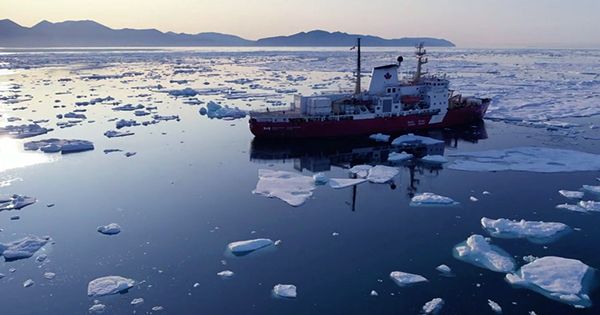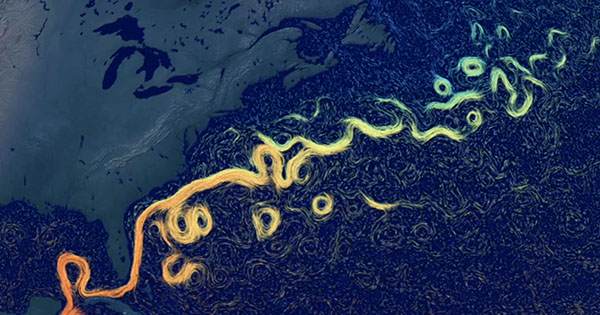New research shows that the current system of the vast oceans that includes gulf currents is losing stability possibly near a tipping point that will have impact impacts across our planet. The reason for this trend is complex, but all the main factors are clearly linked to one thing: man-made climate change. If you think this is exactly the basis of the disaster movie The Day After Tomorrow, you are not mistaken.
However, before you start planning for the apocalypse, it is still unclear how close this tipping point is and what impact we can have if this falls occurs. In the journal Nature Climate Change, Nicholas Boers of the Potsdam Institute for Climate Impact Research, Frey University Berlin, and the University of Exeter examined the health of the Atlantic Meridional Turning Circulation (AMOC). AMOC is like the veins of the earth’s throat.

The vast ocean currents of the Atlantic transport cold water from the tropics to the sea surface and to the bottom of the ocean in the south. One arm of this current is the Gulf Stream, which plays an important role in the climate of multiple regions. AMOC’s stability has declined significantly in recent decades, according to Boers’ analysis. Previous work has revealed that AMOC is currently the weakest of the millennium, but new observations and modeling show that this weakness is actually the result of a lack of stability.
This means that the current system of critical oceans could come close to a critical limit – beyond which the conduction system could collapse. Boers explained in a statement, “The results support the assessment that the AMOC collapse is not just a fluctuation or a linear response to a rise in temperature but is likely to come closer to a critical margin beyond which the conduction system could collapse.”
Many factors are likely to play a role in man-made climate change, including the flow of freshwater from the melting of Greenland’s ice; molten sea-ice; And Rivers flow from excess rainwater, stormwater, and molten water. The impact of a potential collapse is currently difficult to determine, but it is clear that AMOC directly affects the climate along the east coast of North America and much of Western Europe.
The United Kingdom is the equivalent of Canada’s coldest region from the equator, yet the United Kingdom has a much warmer climate thanks to the AMOC bringing warm water north from the Gulf of Mexico. With a weaker AMOC, cooler weather is seen in the UK and other parts of Western Europe. Not all scientists agree with the findings of this latest report. Speaking to the New York Times, Susan Logier, a physical oceanographer and dean at Georgia Tech’s College of Sciences, said the study was “interesting”, but it was still uncertain whether circulation was slowing down due to this instability at the AMOC.
















